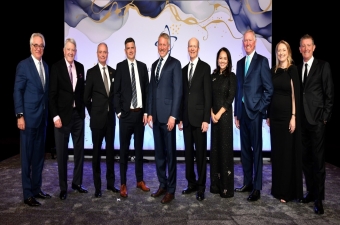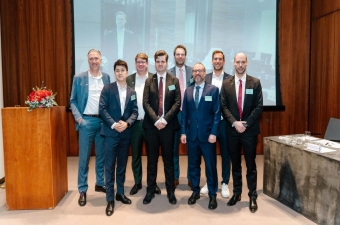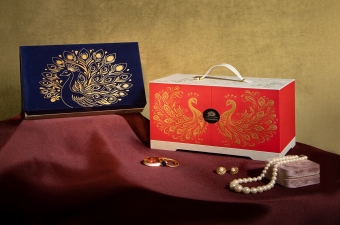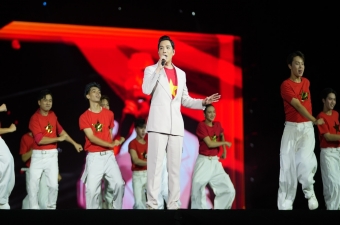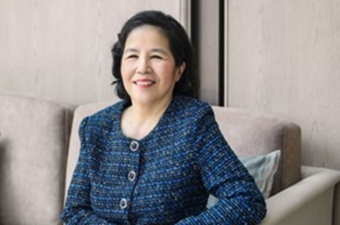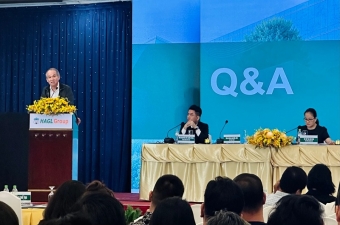Professor Dr. Nguyen Khac Thuan: Education and Culture in Vietnam – Five decades of continuous development
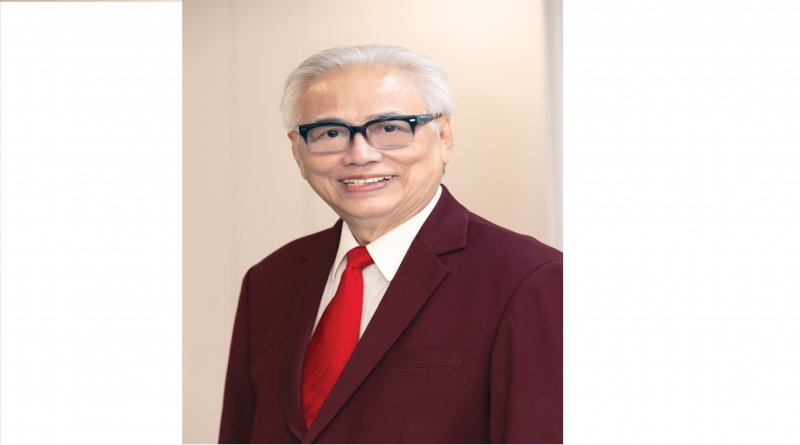
In the celebration of 50th anniversary of national reunification, the 80th anniversary of the August Revolution, and Vietnam’s National Day September 2, Saigon New Day has a talk with Professor Dr. Nguyen Khac Thuan – Senior Advisor of Saigon New Day on Culture and Education.
How do you assess the most notable achievements of Vietnamese education over the past 50 years?
It’s a national scope, and in the position of an ordinary educator, I dare not talk much. However, as a veteran teacher as well as a scholar of history and culture, I do have some reflections to share.
After the great victory of the August Revolution in 1945, President Hồ Chí Minh called upon the people to rise courageously and relentlessly against three enemies: foreign invaders, hunger, and illiteracy.
Foreign invaders had identifiable forces, weapons, and strategies. Therefore, it was not hard for us to realize and confront. Hunger, though unarmed, was devastating, swiftly draining strength and claiming countless lives, as seen in the catastrophic famine of 1945 that killed millions. Illiteracy, meanwhile, silently undermined society’s intellectual capacity, with long-lasting effects. Without persistent study to improve awareness and practical skills, the revolution’s chances of success would have been slim.
Amid external threats and internal struggles, and despite a fledgling government, the nation’s leaders, led by President Hồ Chí Minh, boldly declared war on all three enemies. Fighting on multiple fronts risked dispersion and even failure. Yet, remarkably, revolutionary science and leadership achieved a rare perfection, propelling Vietnam forward with unwavering resolve.
History and culture in the special period were marked with heroic chapters. The French colonial army and its feudal collaborators were crushed and forced to sign the Geneva Accords. The Saigon regime, despite its modern weaponry and determination, eventually collapsed. Hunger was gradually overcome through nationwide solidarity. From a nation with nearly 90% illiteracy, Vietnam steadily eradicated illiteracy and provided educational opportunities for its youth.
Since 1954, Vietnam’s education sector has undergone decisive and continuous reforms. At present, the country boasts 264 universities and academies offering undergraduate programs, many of which also train graduate and doctoral students.
As an educator who has visited dozens of countries, I feel truly fortunate to witness Vietnamese youth standing shoulder-to-shoulder with peers from developed nations. If there are proper facilities and resources, I believe they can create miracles in science, beyond the few exceptional talents already recognized worldwide.
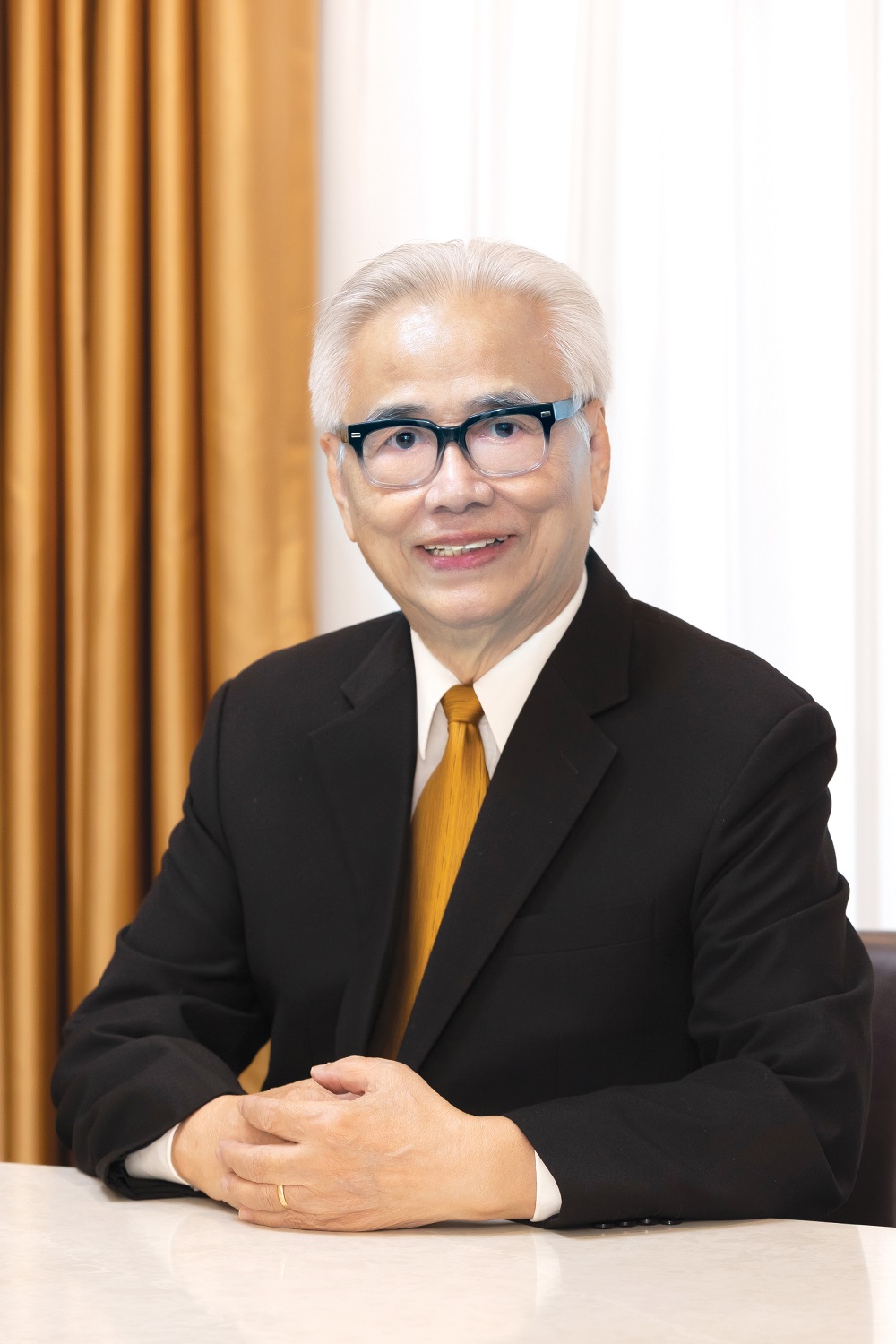
What are your views on foreign cultural elements in Vietnam’s contemporary culture?
Culture is, by nature, universal. More than two millennia ago, Confucianism, Taoism, and Buddhism were introduced to Vietnam, each with varying levels of influence, though their founders—Confucius, Laozi, and Shakyamuni—were not Vietnamese.
In the late 19th and early 20th centuries, democratic and bourgeois ideologies spread widely in Vietnam, though these too were external imports. In the 1920s, pioneering revolutionaries embraced and disseminated Marxism, paving the way for the Communist Party of Vietnam. But Karl Heinrich Marx, Friedrich Engels, and Vladimir Ilyich Lenin were not Vietnamese either.
Thus, we should not hastily condemn foreign cultural influences. The real question is whether these elements embody the true spirit of culture. Having taught at Buddhist and Christian institutions for decades, I have witnessed how every religion contributes profoundly to human culture. In Vietnamese tradition, the gravest sin is to desecrate the family altar, reflecting the deep-rooted respect for faith in all its forms.
Imagine, if earlier generations had rejected Western influence, we would not have the Latin-based Vietnamese script, nor the ease of modern communication, cuisine, clothing, or architecture. If all Vietnamese women today reverted to blackened teeth, chewing betel, and wearing coarse garments, would beauty still shine through? Likewise, if society rejected electricity, broadcasting, mobile phones, and modern transport, where would Vietnam’s civilization rank in the world?
Cultural maps differ from political maps. While political boundaries mark conquests and losses, culture transcends borders, spreading and transforming across nations. Understanding this process requires careful, dedicated study.
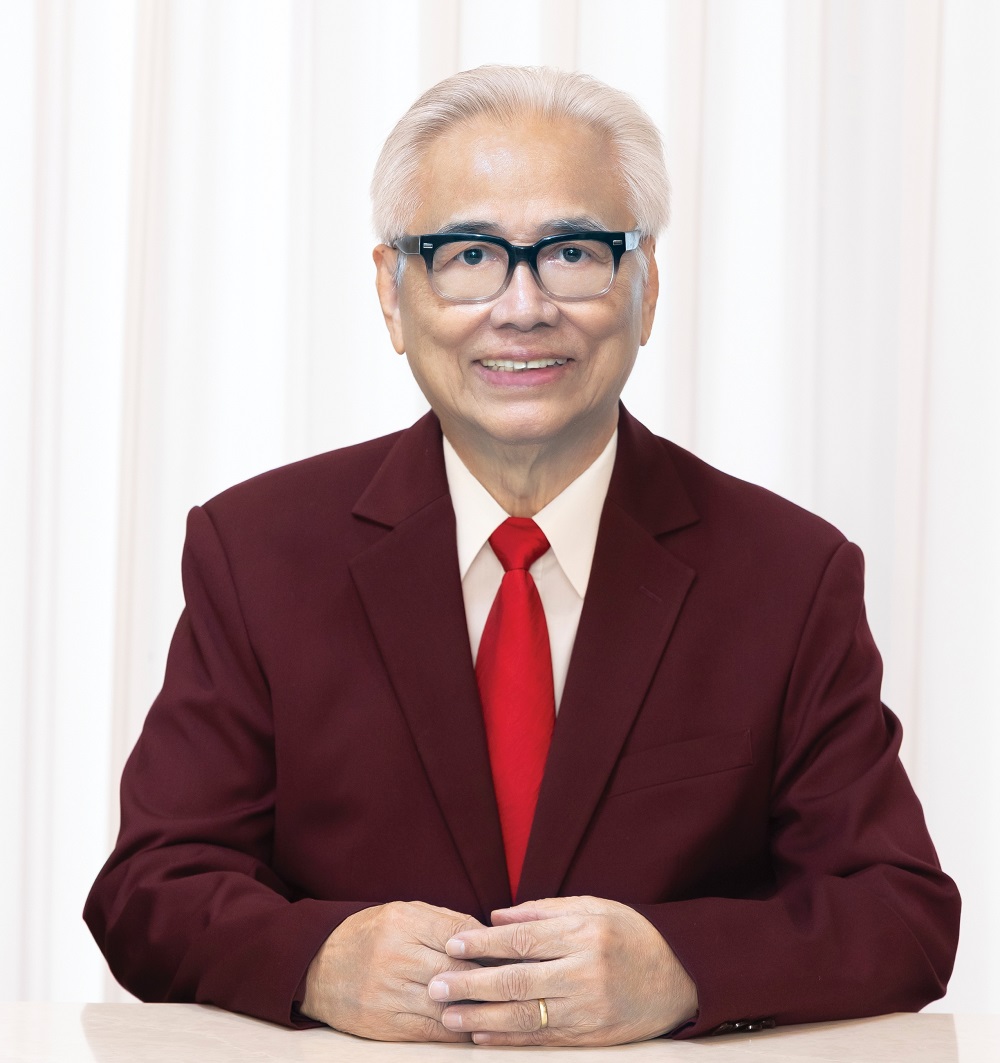
How can we inspire the younger generation to take pride in their national history and cultural heritage?
In my opinion, young people are already proud of their nation’s history and culture. They may not favor history textbooks, but that does not mean they lack historical pride. If history is reduced to enemy plots, our strategies, battle events, outcomes, and lessons, even professional historians like myself would hesitate to read it.
In fact, the history of resistance is the backbone of our nation’s destiny. But our history is not only about war. Young people dislike rigid, formulaic narratives, but that does not mean they fail to honor Vietnam’s ancient culture. The vibrant energy of the youth in the recent parades celebrating national reunification and the August Revolution is living proof of their pride.
Could you share some of your contributions to Vietnam’s culture and education?
I would not claim anything extraordinary. As a professor, I have simply strived to maintain integrity and dignity in my teaching. As a researcher, I have sought to honor my scholarly lineage of respected Confucian educators. With 328 published works and contributions in multiple fields, I may only be considered a diligent worker.
Thank you for your sharing.
|
Professor Nguyen Khac Thuan is a renowned Vietnamese historian and cultural scholar. He formerly served as Deputy Director of the Social Sciences Campus and Dean of Vietnamese Studies at Binh Duong University; Director of the Asian Studies Institute (ACT); Dean of Tourism and Vietnamese Studies; Director of the Institute of Social Sciences at Nguyen Tat Thanh University; Director of the Vietnam Records Institute; and Director of the Institute for Vietnamese Costume Research, among other advisory roles. He has authored 328 research works, many of which have been reprinted. Nearly 1.000 media programs have featured his lectures, including a 225-episode series. He has also been the subject of four documentary films produced by national and local broadcasters. |
By Truc Mai
According to Saigon New day
Keywords : ngày thống nhất non sông, Cách mạng Tháng tám, Quốc khánh 2/9, Ngày Mới Saigon, Giáo sư - Tiến sĩ Nguyễn Khắc Thuần, Cố vấn cấp cao, Ngày Mới Saigon, Văn hóa và Giáo dục Việt Nam, National reunification, the 80th anniversary of the August Revolution, Vietnam’s National Day September 2, Saigon New Day, Professor Dr. Nguyen Khac Thuan, Culture and Education.



